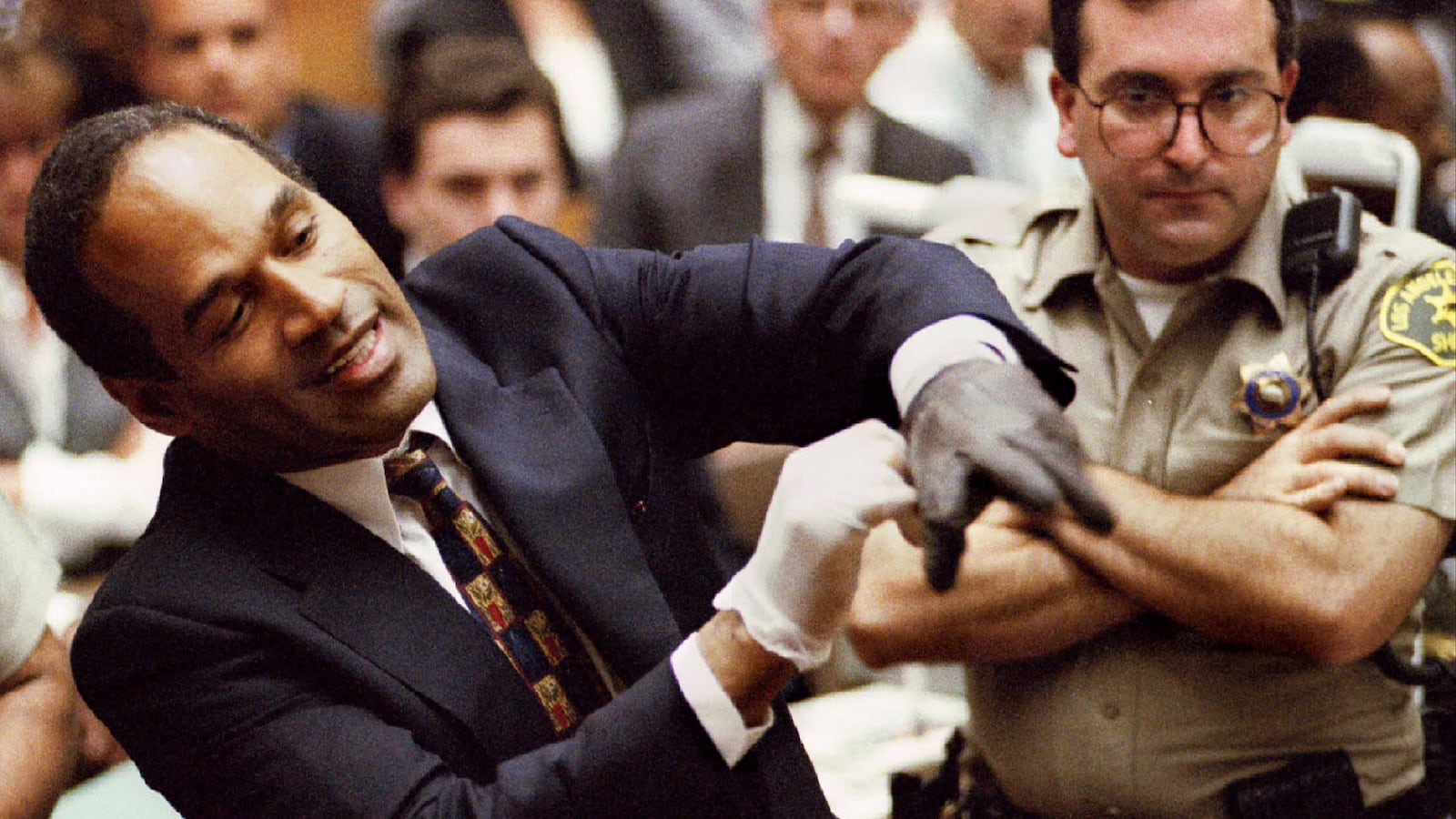Word is spreading quickly about the dangers of repetitive head injury and concussions. From movies about professional football to divisive legal battles, the brain-related dangers associated with intense contact sports are on the forefront of the news. With the Super Bowl just around the corner, millions of American parents are asking themselves whether their kids should be playing football next season.
Let’s get straight to the point: concussions. And in the limelight? O.J. Simpson, again. In a recent interview with People magazine, the physician who helped examine the effects of repetitive concussions on the brain, pathologist Dr. Bennet Omalu, said he would “bet his medical license” that O.J. Simpson suffers from the end effects of a life filled with head injuries.
The diagnosis? Chronic traumatic encephalopathy (CTE), which presents with a constellation of behavioral symptoms that include mood disorders, impulsivity, and poor judgment—as well as a range of cognitive impairments and motor deficits, is thought to be the end result of chronic brain injury.
CTE has its origin as early as the 1920s. Dr. Harrison Martland used the term “punch drunk” (as in professional boxing) to describe the symptoms that seemed to result from repeated blows to the head—symptoms that include gait unsteadiness and mental deterioration.
Unfortunately, Simpson’s post-football life has been filled with legal turmoil. In 2008, Simpson was convicted of armed robbery in Las Vegas—13 years to the day after being acquitted of the murders of Nicole Brown Simpson and Ronald Goldman. His defense attorneys tried to convince a Clark County Nevada judge that he suffered from concussion-related brain damage. And now, Dr. Omalu is willing to be his medical license on it.
Simpson, who was inducted into the Pro Football Hall of Fame in 1985 and played in the NFL for 11 seasons, has repeatedly stated that “I was knocked out of games for such head blows repeatedly in the 1970s and other times I continued playing despite hard blows to my head during football games.”
Although CTE can only be diagnosed in an autopsy after death, Dr. Omalu cited that his clinical suspicions stem from Simpson’s exposure to thousands of head injuries during his playing career, his abnormally large head circumference, his subsequent behavioral symptoms, and his multiple arrests.
Omalu indicates that Simpon’s head may have put have him at increased risk for concussions on the field. Studies such as one out of The Center for Injury Research and Policy have demonstrated that for every one-pound increase in neck strength, the odds of concussion decreased by 5 percent, and head weight and size are a component of the calculation.
CTE has a pathophysiological basis. It is a neurodegenerative disease characterized by accumulations of hyperphosphorylated tau in the brain—similar to that found in Alzheimer’s disease. Of course, the neuropathological makeup of these tau depositions in CTE is unique only to CTE, allowing a diagnosis to be made after death.
Multiple NFL players, including Junior Seau, Frank Gifford, and Tyler Sash, were diagnosed with CTE following their deaths. Last year, a class-action lawsuit from thousands of former players against the NFL was settled with an agreement by NFL to pay up to $5 million per retired player for medical problems related to repeated head injuries.
Nonetheless, the legal community seems to feel that Simpson’s attempt to use brain injury as a defense in his criminal hearings wouldn’t have changed his culpability, and, at best, would have altered his punishment.
So yes, CTE can result in behavioral changes over time—and those who suffer may endure significant changes in personality, aggression, and psyche. But can we reverse engineer correlative facts with causation? No.
It will be awhile before science is able to define the clinical manifestations of CTE, and until then, rest assured that the data behind repetitive head injuries accumulating to cause trouble as we age is robust; the data behind the exact clinical syndrome—not so much.
Whether it’s for Americans playing sports or serving our country, concussion research is critical now more than ever.







